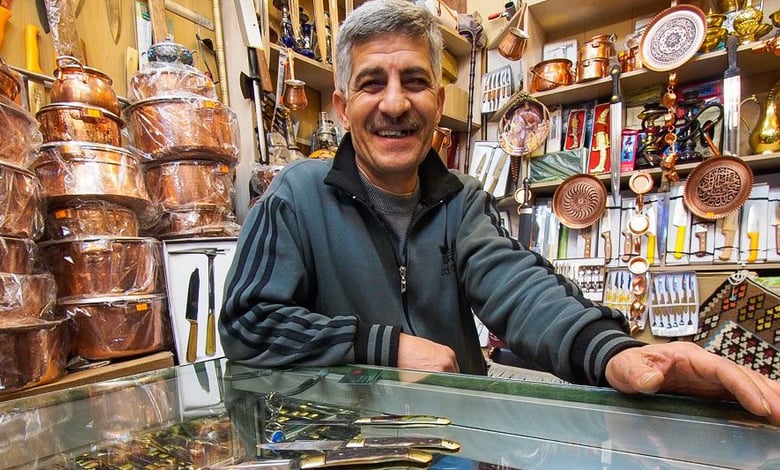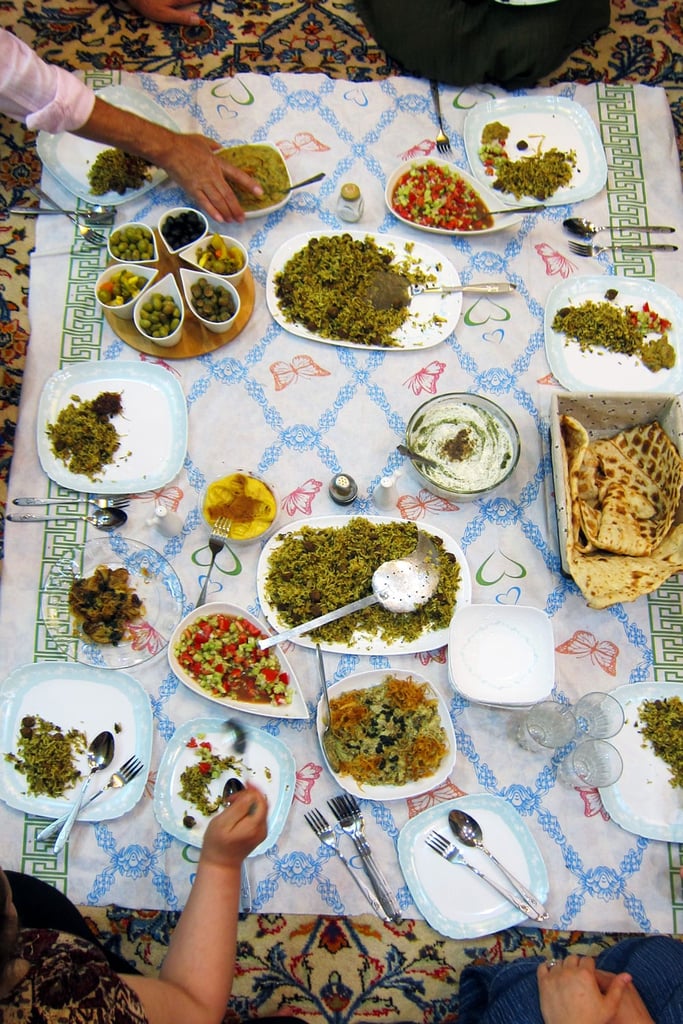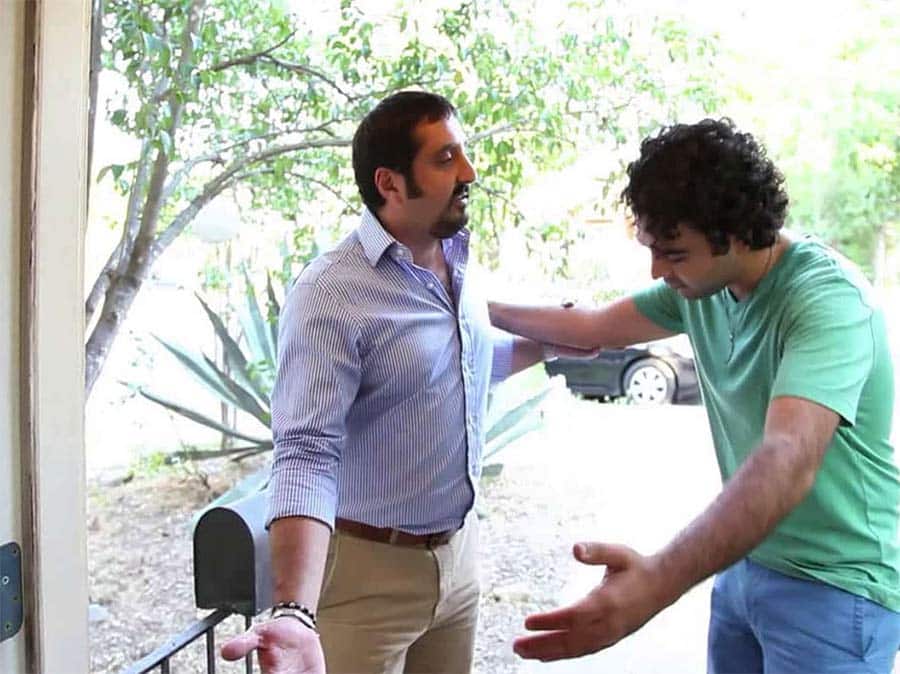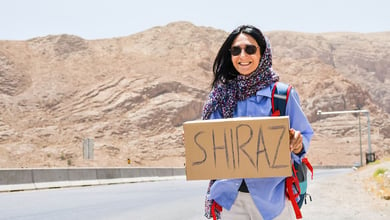The Legendary Iranian Hospitality

Iran has many stunning natural landscapes and many cultural and historical sights, but despite all these wonders, hospitality may be the number one reason you want to visit (again) the country.
From little acts of kindness that warm up your heart to unforgettable shared moments, a trip to Iran is also the discovery of the true meaning of “hospitality”. In this article, find out why Iranians may be the most hospitable people in the world.
Contents
The hospitality of Iranians
“The people are, quite simply, the best experience in Iran”: that’s how Lonely Planet, the world’s travel specialist, chooses to introduce Iran to its readers. And this is a statement no visitors to Iran will ever contradict. If there was a world contest of hospitality, Iranians would most probably rank first, as generosity and kindness are truly parts of their identity.
Iranian hospitality is usually the first thing travelers remember from their trip to Iran. Maybe both because of how deep this hospitality is, but also because it contrasts so much with what they may have heard about Iran and Iranians before. And even when you’re prepared, and you’ve visited other welcoming countries, the experience usually goes beyond what you could have expected. Simply have a look at the visitors’ comments on forums and review websites, and you’ll soon realize Iranians are what makes Iran so special.

And that’s nothing new. Already in ancient Persia, western travelers recalled with awe the extent of the generosity of Iranians. The French traveler Jean-Baptiste Chardin for instance, who visited Iran in the 17th century wrote: Iranians are “the most wheedling people in the world, with the most engaging manners”.
For many travelers three centuries later, Iranian hospitality remains the reason why they fall in love with the country. Because they often have a unique experience as they can connect and bond so easily with the people they meet on their way. As for me, Iranians have been the number one reason I have decided to live in that country for now more than four years…
What does Iranian hospitality look like?
Iranian hospitality is also what makes Iran such a perfect destination for solo travel: in Iran, you will never feel lonely. Most Iranians are by nature very warm; at least way more than European standards. They easily talk to strangers, especially if you’re alone, and overall, they enjoy interacting with each other. So, it’s a country where it’s easy to interact with people.
But more importantly: as soon as they understand you are a visitor (meaning: a guest in their country), they will invite you for a cup of tea, they’ll want to offer you whatever you were about to pay for, and before you’ve even realized it, they have settled everything to invite you over for dinner! Iranian hospitality often looks like this: countless invitations to people’s homes. Even when they don’t speak one word of English, many will be honored to be your host for sharing a meal.
To understand (or believe) the extent of Iranian hospitality, you should experience it yourself. But we could describe a typical manifestation of it like this: let’s say you walk in the street, searching for a specific place. You stop, looking confused. If you’re spotted as a foreigner, or if you ask for help, in the second a stranger stops to help. They will greet you and welcome you in his country, and most probably accompany you to your destination just to be sure you arrive safe and sound. After that, they won’t leave without inviting you home and exchanging numbers (there’s a trick in that story you should get familiar with though: it’s ta’arof, which is explained below)
Two real examples of Iranian hospitality
If you think that example is exaggerated, let me tell you something: it’s the bare minimum of Iranian hospitality. During my first trip to Iran, I remember being amazed by how much people would help me and be kind to me anywhere I would go.
One day, I just arrived in Shiraz and I was waiting for someone when I decided to sit at an ice cream shop. I was carrying my backpack and I didn’t know one word of Persian to place my order. But another customer came and somehow helped me, without speaking English either. I sat in that tiny tiny shop, one table away from that old man accompanied by a little girl. I was still enjoying my saffron ice cream when they both stood up to leave, went to the cashier, paid and then the man turned to me and said (or, at least, made me understand): you don’t need to pay, I paid for you. And just like this he said goodbye and left.

He was not expecting anything from me; he didn’t even try to talk with me as we couldn’t communicate. Simply, he had this extremely kind gesture to a perfect stranger that I will never forget.
Another time, I was traveling to Sistan and Baloochistan with an Iranian friend. One evening, in Darak, we were about to plant our tent when my friend asked a local where was it better for us to do so. He indicated the entrance of the mosque and left. A few minutes later, he (or another man – forgive my weak memory) passed by again, and this time my friend asked where we could have some food. As soon as the man realized we were two women camping alone, he told us: “No way, you don’t stay there! You’re my guest tonight.” And that’s how we spent the evening at his home, surrounded by dozens of kids curious about these visitors, sharing the most delicious food, even trying balooch clothes, and listening to this man’s stories about his region and his culture. This is how Iranians treat strangers in Iran.
Guests are God’s friends
In Persian culture as well as in Islam, hospitality is something simply fundamental. That explains why Iranians are taking it so seriously: it is part of their culture to treat their guests with the best manners. It is rooted in the belief that guests are “God’s friends”.
In Islam, hospitality and generosity are indeed fundamental. It is perceived as a duty toward God to treat your guests well; you will please God by doing so and it is your responsibility to make your guest feel comfortable. Hospitality, in Islam, is linked to two of the most important beliefs, the one in God and the one in the Day of Judgment, and is thus highly valued.
Sufi poets have also written a lot about hospitability and the act of giving. There is a famous saying from Abu al-Hassan al-Kharaqani that says: “هر کی در این سرای دراید نانش دهید و از ایمانش مپرسید”. A sentence that could be translated to: “Whoever enters this home, give them bread and don’t ask about their belief”. Sanai, another Sufi poet from the 12th century, wrote: “Know him as a gift from the Lord, when a guest suddenly shows at your door”.
In Persian culture, it doesn’t make a difference whether your guest is poor or rich, a close relative or a stranger: you should make them feel at home and treat them the best you can.
Hospitality in Persian culture
Many Iranians nowadays may not share such faith, but they still have this principle of hospitality rooted in their culture. Like in many parts of the world, the fewer people have, the more they give: it’s in the most rural areas, where people usually have little to live with, that you can experience the most generous hospitality. Just take weddings as an example: in most rural places, weddings gather hundreds of guests, and most of the time, you don’t even need to be formally invited.
Because hospitality in Iran is also linked to the fact that Iranians are quite sociable. Most people like to gather, spend time with others, share generous meals, etc. In the end, invitations are great occasions to cook delicious Persian food and have some “mehmooni” (“party”) which most Iranians love!
Eventually, it’s highly probable that the political context of these past decades has also exacerbated Iranian’s hospitality toward foreigners. During many years after the revolution, there were barely any foreigners visiting Iran. In the first years of Rohanni’s government, the country suddenly opened up to tourism, and many Iranians were eager to meet and talk to foreigners. Both, as a way to restore Iranians’ image (labeled as “terrorists” by mainstream media) and as a way to get to know other cultures and practice foreign languages, as their access to international travel has become much restricted.
What to do if you’re someone’s guest in Iran
So you’ve understood it by now: when you’ll travel to Iran, there is no way you won’t be someone’s guest, at least for a cup of tea. Yet, there are a few things to keep in mind in order to avoid cultural faux pas.
First and most important: learn about ta’arof! Ta’arof could be summarized as extreme politeness, but it’s much more than that. Ta’arof, it’s also your taxi driver or your grocery seller refusing your money: it’s just courtesy, and you should insist to pay! It means that many people will somehow feel culturally “forced” to invite you. If you’re at a restaurant with Iranian friends, be 100% sure that they will offer to pay for the bill. This is ta’arof: they don’t necessarily want to pay, but they have to offer in order to be polite. And they will insist…

So, as a rule, always remember that you should also insist to refuse to be a guest! Do it politely though… If someone invites you over for dinner, refuse at least twice, by explaining that you don’t want to bother them. Just ensure that person truly wants to (and can) invite you. Avoid taking the taxi right away to their house, and give them enough time to prepare everything (that may imply saying you’d better go there/do this before, even if it’s not the case). Likewise, don’t accept invitations you can’t attend as it would be rude to cancel.
And eventually, just remember you are a guest in someone else’s home! Being respectful of their culture and being polite is the least you can do. If you’re invited to their home, try to bring a gift to your host (don’t expect your host to tell you anything if you ask “what should I bring?” in the European way). And if you’re staying over a bit longer than just a meal, also try to do something in exchange (such as cooking, as your host may not allow you to approach dirty dishes) to express your gratitude.
Read More







